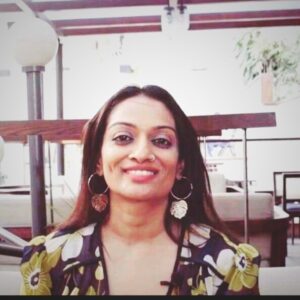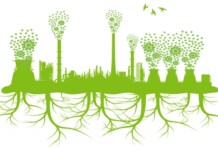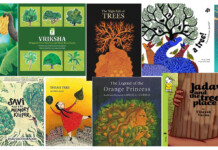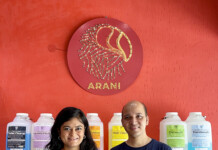Caroline Cares reflects on the impact the recent sustainability conference in Nigeria, organized by the Youth Sustainability Development Network, had on her. Caroline is an executive coach and educational consultant.
My faith and belief that as humans we are gifted with the abilities that allow us to be and do beyond a mindset of survival. In other words, our responsibility is not just to eat, sleep and consume. No.
We have a duty and are accountable towards the planet we live on and to the quality of the conditions of the environments within this planet.
We can and have choices on how we can express this accountability and the measures of action we take to fulfill what I see as predetermined promises we make in order to ensure the quality of these environments. Although most often and for many of us, this commitment is either forgotten or abused.
Tiny steps made out regularly and with intention can bring about some of these very necessary changes. We must collectively continue to do together and do it with intention if we are to ensure that this planet is livable for our own future and those we coexist with.
The Youth Sustainability Development Network is in their own words, ‘Out to make lasting social change in all facets of society’. I have been so inspired by their consistency, passion and drive in order to opt out of passive consumption in order to create and contribute towards positive sum goals.
I met Dammy late last year through another conference for Nigeria. The conference was centered around job opportunities for youth that I was speaking at and he had helped us bring one of our team members Durodoluwa onboard for our work that we were curating and set to launch early this year.
I clearly remember in that first chat, he asked whether she would be paid for her efforts. And I found his courage and confidence to be inspiring. I have a high regard for people who know and express boundaries that are governed by their core values. A deep respect began to germinate within me for him, the community and I was also happy that within the Krisullis, our work was being anchored in such an environment.
I think when we believe in the value of our efforts, that self-belief becomes a channel towards the way we show up in our conversations and elsewhere. We remained in each other’s support and our connection grew.
With each interaction with Damilola Hamid Balogun, the founder of YSDN, my faith and belief in ways that we as humans can access and tap into these very gifts and using them for the benefit of positive outcomes that I mentioned at the start, becomes more palpable and realized.
The YSDC Global conference was held virtually and is focused on bringing delegates with sustainable initiatives in Africa together to develop solutions to existing problems through a case study challenge cantered around the theme ‘ Saving the Earth Initiative’. This initiative serves as a collaborative to activate African youth towards long-term benefits in line with United Nations SDGs.
The winner of the challenge has the opportunity to implement their solution in NIgeria and have access to training from directors from the conference.
While their work at the YSDN around the annual conference is comprehensive and designed for impactful outcomes, I also had the opportunity to join the YSDC conference as a panelist on ‘Quality Education and Youth’.
Owing to our own startup having launched in Nigeria, there was a natural alignment in participating and representing our work towards educating youth about the many benefits of creator and behavior economics.
Krisullis, which is the environment the caterpillar goes into in order to emerge as a butterfly. We believe such environments are not present by accident but by design and thoughtfulness. Our focus for our youth in Nigeria has been curated to help them leverage the power of sustainable creator economics and behavior economics.
The discussion brought up many important nuances around education in Africa, the different kinds of challenges they have experienced from a political and systemic perspective as barriers to growth. Breakthrough solutions on mindset changes, courage, mentorship and building one’s own network were also at the heart of solutions that were raised and talked about.

From a Krisullis standpoint my view was about the opportunities that can be realized for changemakers with communities, to understanding the creator landscape and enabling creators to activate earning pathways for themselves and their followers.
This pathway would also open parallel scope for gig work. With the rise in remote work, and research from ILO indicating how many more businesses will tap into hiring people virtually, the way forward has tremendous potential and possibility for benefits beyond just the education itself.
I believe that a solution can only be sustainable when it truly represents a way to relieve people from an existing problem or challenge.
In other words, both the inside out (mindset wise) as well as an outside-in (tapping into what is happening across the world and knowing how to access opportunities to accelerate change and growth).Indeed both approaches are critical towards facilitating transformation collectively.
We do better when we recognize and how much better we can do together. This applies to families, corporations, communities. There are reasons why this age-old practice of coming together has simply remained the same underneath evolving times. Untapped energy, strengths and potential becomes a guiding force for us to begin and sustain our efforts in order to be and do better for the present and future.
Together is better!
Here is a link to know more about their mission and efforts :











